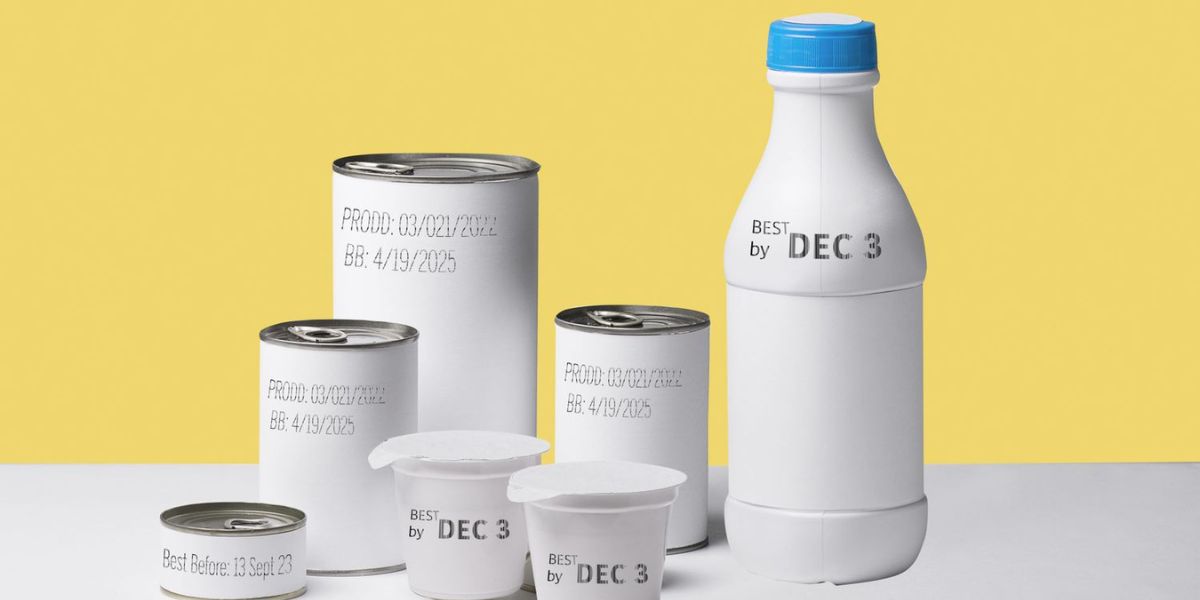MJP
With everyone looking to save money at the grocery store these days, it’s a good time to be reminded of the old maxim that the most expensive food is the food you throw out. So one state is trying to make sure that misleading labels don’t lead you to let good food go to waste.
California has become the first state in the country to enact a law that would clear up confusing date labels on perishable foods. How do you know when the date stamped on a product means it’s not safe to eat after that date, or whether it’s simply no longer at its best, and is just fine as long as it passes the smell test?
What’s the difference between “best by,” “use by,” “sell by” and a plethora of other imprecise phrases?
The measure, which passed the state legislature overwhelmingly, has now been signed into law by the governor and will take effect in July 2026. By that date, only two phrases will be legal on perishable products sold in California: “Use By” and “BEST if Used By.”
The first will pertain to product safety – if you don’t “use by” the date on the product, you shouldn’t eat or drink it. The second will communicate peak quality – so it may no longer be “best” after the date listed, but it won’t hurt you.

“The inconsistent use of phrases like ‘Sell By,’ ‘Expires On,’ ‘Freshest Before,’ and others makes for an impossible-to-navigate system for consumers who don’t want to throw away good food or make their families sick,” Erica Parker, a Policy Associate with bill cosponsor Californians Against Waste, said in a statement. “The result is a staggering amount of food waste – Californians throw away six million tons of food waste each year – and confusion over date labels is a leading cause.”
Iconic Grocery Store Closes in Illinois, Leaving Shoppers Heartbroken
California took action while an effort to address the issue on a federal level has languished. Democratic U.S. Senator Richard Blumenthal of Connecticut and Democratic Congresswoman Chellie Pingree of Maine first introduced legislation to simplify and streamline food date labeling eight years ago . With a new cosponsor, Republican Congressman Dan Newhouse of Washington state, their bipartisan Food Date Labeling Act is now before Congress for a third time.
“Our current food labeling practices are outdated, confusing, and completely arbitrary, resulting in around 90 percent of Americans prematurely throwing out perfectly safe food,” Pingree said in a statement. “This staggering waste takes a toll on families’ wallets, on the environment, and on the economy.”
Legislation is not necessarily something that food manufacturers wanted to see. They had hoped that voluntarily simplifying their own labels would forestall legal requirements to do so – and avoid penalties for not doing so. Nearly six years ago, the Grocery Manufacturers Association (now known as the Consumer Brands Association) issued a report saying that 87% of all packaged food products now used only the “Use By” and “Best If Used By” phrases , and predicted “complete adoption by early 2020.”
But Assemblymember Jacqui Irwin, sponsor of California’s bill, said voluntary compliance hasn’t worked. “Adoption of these standards has been supported by producers and proven commercially viable for brands to undertake, but comprehensive implementation of these standards has fallen short,” her office said in announcing that her bill had been signed into law.
“On grocery store shelves today, there are more than 50 differently phrased date labels on packaged food,” an inconsistent system that has caused a lot of perfectly-good food to end up in the trash.
The average American spends $1,300 on food that is never eaten, her office went on to explain. “Tossing food prematurely because of misleading date labels costs Californians billions each year. In a time of rising grocery bills and food insecurity, every bit of savings helps.”
You probably wouldn’t drink or eat anything that looks or smells funky, no matter the date on the package – no rules, regulations or legislation required. But at a time of increasing food waste and rising grocery prices, retiring that other old maxim, “when in doubt, throw it out,” could mean less food in the trash – and more money in your pocket.




